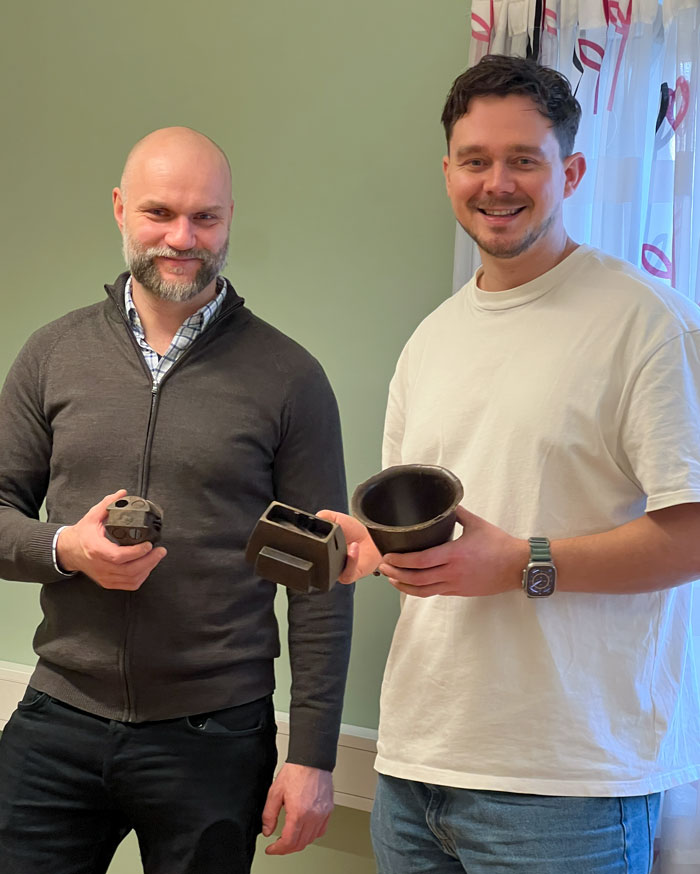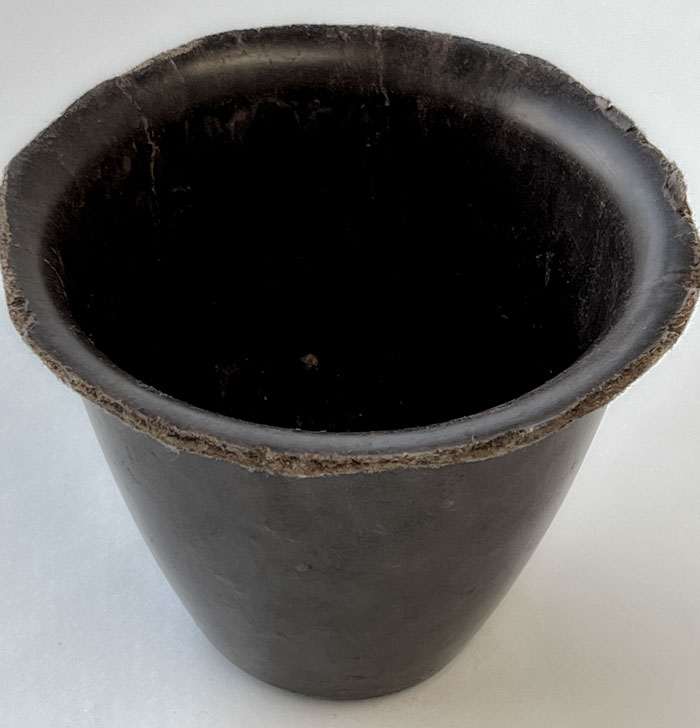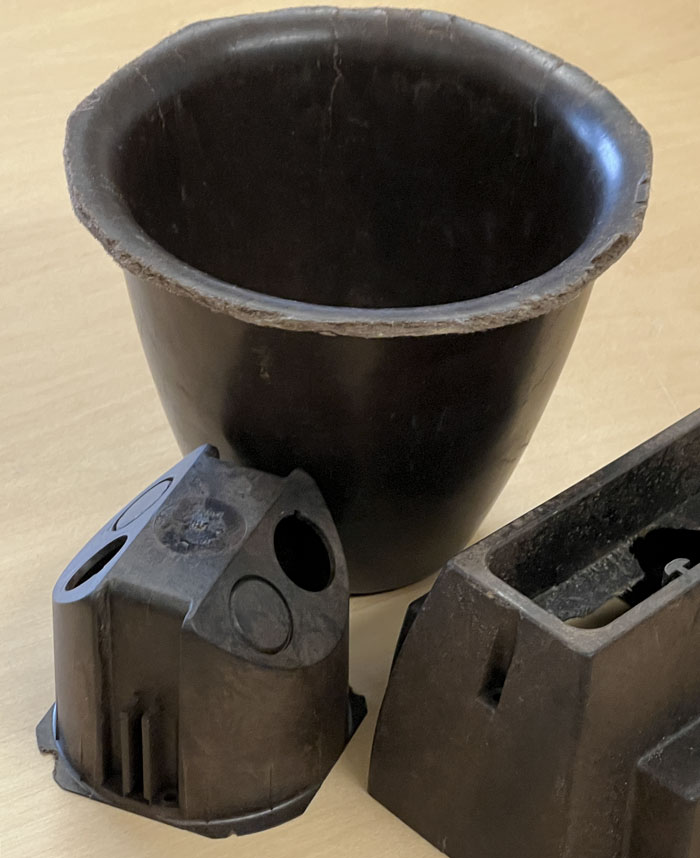Innovative Wool Reuse Project: A Sustainable Solution to a Waste Problem.
In Europe, more than 3 billion plastic pots are used annually. Half of these are single-use plastics, 98% are derived from fossil materials, and over 95% end up in landfills. Current alternatives, such as peat, cardboard, coconut fiber, and bioplastics, face significant challenges related to sustainability and sourcing.
Every year, up to 200,000 tons of sheep’s wool are discarded in Europe. This is downclassified sheep’s wool, which is not suitable for textile production. Through collaboration in the ProKomp project, Woolero and RISE PFI have developed a new composite from these wool fractions and a bio-based binder. The composite material is a novel and sustainable plastic alternative that can be processed like regular plastic. It feels like plastic but is 100% bio-based and biodegradable, explains Jost Ruwoldt from RISE PFI. This composite surpasses conventional plastic-based solutions both ethically and environmentally. In addition to the new binder, we have also developed production processes for the production of the plant pots, says Ruwoldt.
Who is Woolero?
Woolero is a start-up company originating from NTNU that develops sustainable and soil-improving products from wool unsuitable for textile production.
For the past three years, Woolero has worked target-oriented to utilize this underutilized raw material, creating climate-smart alternatives to non-renewable materials in agriculture. In 2021, the company established Norway’s first factory for organic fertilizer from sheep’s wool in the Osen municipality. Through this work, they discovered that wool has several characteristics making it an excellent sustainable material alternative, with the potential to replace significant amounts of plastic and peat internationally.
With support from the Regional Research Fund Trøndelag, Woolero now has established a sustainable production process for its bio-based composite material, made from Norwegian sheep’s wool that would otherwise go to waste. The product withstands water, weather, and wind. ‘The material also decomposes into compost that enriches the soil,’ says Mathias Hoel, CEO of Woolero. The products that Woolero develops are primarily intended for use in agriculture, where the wool provides essential nutrients and soil-enhancing properties.
How was the collaboration with RISE PFI?
Woolero has had a close and productive collaboration with RISE PFI, where Jost Ruwoldt has led the research work with strong academic expertise over the past two years. This collaboration has been crucial for the company’s development and growth, and we hope for more successful projects in the near future, says Mathias Hoel.



